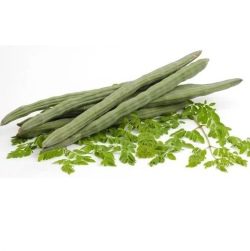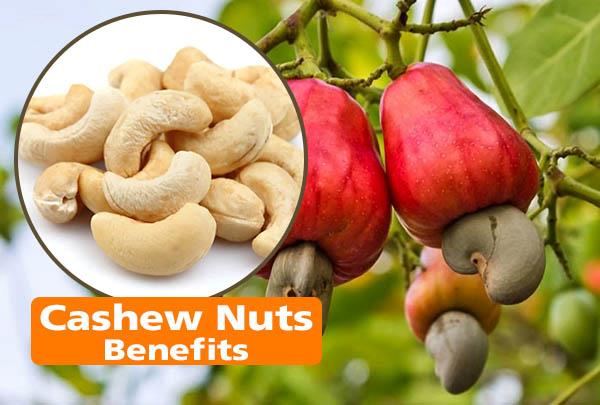Does Moringa Benefits in Digestion? Absolutely! This remarkable plant, scientifically known as Moringa oleifera, is gaining widespread recognition for its incredible contributions to human health. Among its many virtues, Moringa offers significant support to the digestive system. In this comprehensive article, we will delve deep into the various ways Moringa benefits digestion and promotes overall well-being.
Table of Contents
What is Moringa?

Moringa, often referred to as the “drumstick tree” or “miracle tree,” is native to South Asia but has found its way into various parts of the world due to its exceptional nutritional and medicinal value. It is rich in essential vitamins, minerals, and antioxidants, making it a powerhouse of nutrients.
What are the active compounds found in moringa that help digestion?
Moringa contains several bioactive compounds that aid digestion. These include:
- Phenolic compounds: Moringa contains several phenolic compounds, such as lignans, flavonoids, and phenolic acids, which have been found to have antioxidant, anti-inflammatory, and anti-cancer properties.
- Fiber: Moringa is a good source of both soluble and insoluble fiber, which can help to keep the digestive system regular and reduce constipation[1].
- Proteins and peptides: Moringa contains proteins and peptides that have a high nutritional profile and exhibit many biological activities, including antioxidant, anticancer, antibacterial, hepatoprotective, and antidiabetic activities.
- Phytosterols: Moringa is rich in phytosterols like stigmasterol, sitosterol, and kampesterol, which are precursors for hormones and can help to improve digestion.
- Fatty acids: Moringa contains less saturated fatty acids and a high amount of monounsaturated fatty acids, which can help to improve cholesterol levels.
- Carbohydrates: Moringa contains carbohydrates that can provide energy and support digestive health.
In summary, Moringa contains several bioactive compounds that can aid digestion, including phenolic compounds, fiber, proteins and peptides, phytosterols, fatty acids, and carbohydrates.
See also: Ajwain Water Benefits: From Digestion to Hair Health
Moringa Benefits in Digestion: A Natural Digestive Aid
Moringa has several benefits for digestion, including:
- Treating stomach upset: Moringa extracts might help treat some stomach disorders. For instance, the fibrous pods can benefit digestive health and may help prevent colon cancer. Moringa leaves have shown a laxative effect, making moringa a possible option for constipation. In one study, moringa reduced stomach acidity by around 85%, suggesting it could prevent peptic ulcers. Moringa’s antibiotic and antibacterial properties may help prevent the growth of pathogens that can cause infections. Moringa may help prevent ulcerative colitis as its anti-inflammatory effects may protect the digestive system from damage[1].
- Improving gut bacteria: Moringa leaves powder promotes gut health and encourages the growth of important beneficial bacteria in the digestive system. Its abundant fiber content is essential for ensuring regular bowel movements and reducing the likelihood of constipation. In addition, its high-fiber composition can help to keep blood sugar levels even and reduce cholesterol simultaneously. Moringa contains many compounds that can help to encourage digestion and the production of essential digestive enzymes such as amylase and lipase. This helps to promote a more efficient breakdown of food, allowing the body to easily absorb all the vital nutrients it needs.
- Reducing constipation: Moringa benefits in digestion, the fiber found in moringa may help keep the digestive system regular. It contains soluble fibers as well as insoluble fibers. Both forms of fiber have many health benefits, especially for digestion. Soluble fiber dissolves in water and turns to gel, slowing digestion and keeping the body fuller for longer, while insoluble fiber adds bulk to the stool, making it much easier to pass through the digestive tract, therefore reducing constipation.
- Improving cholesterol: Moringa has the potential to decrease cholesterol. According to one study, moringa has hypocholesterolemic (lipid-lowering) and antiatherescotic (prevents the buildup of plaques in artery walls) activities that support a healthy heart.
- Preventing colon cancer: The fibrous pods of moringa benefits in digestion and may help prevent colon cancer.
- Reducing stomach acidity: In one study, moringa reduced stomach acidity by around 85%, suggesting it could prevent peptic ulcers.
- Preventing ulcerative colitis: Moringa may help prevent ulcerative colitis as its anti-inflammatory effects may protect the digestive system from damage.
- Encouraging the growth of beneficial bacteria in the gut: Moringa benefits in digestion by promoting the growth of important beneficial bacteria in the digestive system, which is essential for gut health.
- Encouraging the production of digestive enzymes: Moringa contains many compounds that can help to encourage digestion and the production of essential digestive enzymes such as amylase and lipase.
- Reducing inflammation in the digestive system: Due to its anti-inflammatory properties, moringa has been used in ancient systems of medicine, such as Ayurveda, to prevent or treat stomach ulcers, liver disease, kidney damage, fungal or yeast infections (such as candida), digestive complaints, and infections.
Drumstick Leaves Benefits for Skin
Drumstick Leaves Benefits for Eyes
Potential Side Effects of Moringa
While Moringa benefits in digestion, it is essential to be aware of its potential side effects, although they are generally rare and mild. Some individuals might experience:
- Digestive Upset: While Moringa benefits in digestion, in some cases, Moringa consumption can lead to mild stomach upset, including diarrhea or nausea. If this occurs, reduce the dosage or discontinue use.
- Allergic Reactions: Some people may be allergic to Moringa. If you’re trying it for the first time, start with a small amount to check for any adverse reactions.
- Interference with Medications: While Moringa benefits in digestion, it may interact with certain medications, so consult your healthcare provider if you’re on medication before adding it to your diet.
How to Incorporate Moringa into Your Diet?
Now we’ve learned how Moringa benefits in digestion, you might be wondering how to incorporate this superfood into your daily meal. Here are some creative and delicious ideas:
- Moringa Smoothie: Add Moringa powder to your morning smoothie for an extra boost of nutrients.
- Moringa Tea: Brew Moringa leaves to make a soothing and nutritious tea.
- Moringa Pesto: Use Moringa leaves to create a unique and healthy pesto sauce for pasta.
- Moringa Soup: Add Moringa leaves or powder to your favorite soups and stews.
- Moringa Salad: Sprinkle-dried Moringa leaves as a nutritious topping for salads.
See also: 6 Surprising Health Benefits of Moringa Ginger Tea
Conclusion
In conclusion, Moringa benefits in digestion are numerous and diverse, making it a valuable addition to your diet. Whether you’re seeking relief from digestive issues, looking to enhance nutrient absorption, or simply aiming for overall better digestion, Moringa has got you covered. Incorporate this incredible natural remedy into your daily routine, and you’ll experience firsthand the wonders of Moringa’s digestive prowess. So, why wait? Embrace the power of Moringa and give your digestive system the care it deserves!
FAQs
Q: Does moringa clean your intestines?
A: Moringa is believed to have mild detoxifying properties, which can contribute to maintaining a healthy digestive system. It contains fiber that aids in regular bowel movements, potentially helping to flush out waste and toxins from the intestines. However, it’s important to note that Moringa alone may not serve as a comprehensive intestinal cleanser, and a balanced diet is crucial for overall intestinal health.
Q: Is moringa easy to digest?
A: Yes, Moringa is generally considered easy to digest. Its leaves, pods, and powder are not known to cause digestive discomfort for most people. In fact, the high fiber content in Moringa can be beneficial for digestion as it promotes regular bowel movements and supports gut health.
Q: What effect does moringa have on the stomach?
A: Moringa is known for its soothing effect on the stomach. It can help reduce stomach irritation and discomfort, making it a valuable natural remedy for individuals with digestive issues. Moringa’s anti-inflammatory properties may also contribute to a calmer stomach environment.
Q: Can moringa soften stool?
A: Yes, Moringa’s high fiber content can help soften stool and promote regular bowel movements. For individuals experiencing constipation, incorporating Moringa into their diet may provide relief and improve stool consistency.
Q: Is moringa good for the stomach lining?
A: Moringa’s antioxidant properties can be beneficial for the stomach lining. They help protect the stomach from oxidative stress and potential damage caused by factors like inflammation or certain medications. However, it’s essential to consume Moringa in moderation as part of a balanced diet to maximize its benefits for stomach health.
Q: Does moringa stop bloating?
A: Moringa’s ability to aid digestion and reduce inflammation in the digestive tract can contribute to a decrease in bloating for some individuals. By promoting more efficient digestion and soothing the stomach, Moringa may help alleviate the discomfort associated with bloating. However, the effectiveness can vary from person to person, and it’s essential to consider other dietary and lifestyle factors that may contribute to bloating.





2 thoughts on “How Moringa Benefits in Digestion? 10 Powerful Benefits”